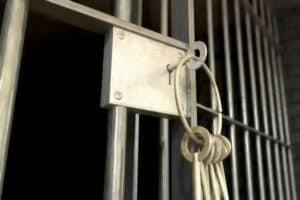The protest was organised by Rape Crisis' Rape Survivors Justice Campaign and was part of the 16 Days of Activism campaign.

About 30 people protested outside the Khayelitsha Magistrate’s Court on Tuesday to demand a better sexual offences court.
The protest, which was organised by Rape Crisis’ Rape Survivors Justice Campaign (RSJC), was part of the 16 Days of Activism campaign and the occasion of the presentation of a report on the Khayelitsha Regional Court, GroundUp reports.
The citizen-based monitoring report found that:
- survivors of rape and other sexual offences often found it very difficult to navigate the court building;
- the court preparation room and consultation rooms were outside the safe area that had been created with access control;
- restrooms were far away from the waiting room;
- no measures were in place to make sure that there was no contact between a rape survivor and an accused;
- interpreting services were not available in the languages spoken by witnesses so matters often had to be postponed;
- facilities were not all accessible to disabled people with disabilities; and
- no dogs, including guide dogs, were allowed in the building.
The protesters sang and danced, chanting: “Wathint’ abafazi, wathint’ imbokodo.” (You strike a woman, you strike a rock.)
They held placards bearing the slogans: “Support in every court”, “Proper infrastructure and access to justice for all” and “Justice for rape survivors”.
The RSJC’s Mandisa Mbotshelwa said: “Government has signed the regulations to the promise made long ago to roll out sexual offences courts across the country, but we found out that Khayelitsha court is lacking very important things.
“The sexual offences court in Khayelitsha needs a separate entrance where the survivor will not bump into the perpetrator. We need separate restrooms for survivors, we need comfortable waiting rooms for elderly survivors and survivors who are living with disabilities, and we need basic things like toys and colouring books for children,” said Mbotshelwa.
Mbotshelwa added that the RSJC had been working on the monitoring report for a month, attending court cases to monitor how things were done, visiting the court to check what was lacking, and getting input from communities.
Protester and Harare resident, Nontombi Ndzoyiya, said she joined the protest because “day in and day out women and children are being raped and the perpetrators are just walking free among us”.
Ndzoyiya recalled the rape of her friend Nandipha Makeke, a Treatment Action Campaign member, who was also shot and left in a toilet in 2005.
“I am still not coping with what happened to Nandipha because she was a close friend of mine and the night that she died is the night she had come from my house. Luckily, the perpetrators were arrested. It is very important for us to keep fighting for sexual offences courts, so people can get protection and justice,” said Ndzoyiya.
The RSJC handed over a copy of the monitoring report to MP Qubudile Richard Dyantyi, who is also a member of the justice and correctional services committee and the Magistrates Commission.
“This sexual offences court is in a poor condition – it has no access, no privacy. We have to make sure that victims are protected and they feel they are in a safe space. I will make sure that this report is looked at thoroughly and attended to,” said Dyantyi.
“Why is the Khayelitsha sexual offences court not like the one in Wynberg? What is lacking?” he asked.
Republished from GroundUp
For more news your way, download The Citizen’s app for iOS and Android.






